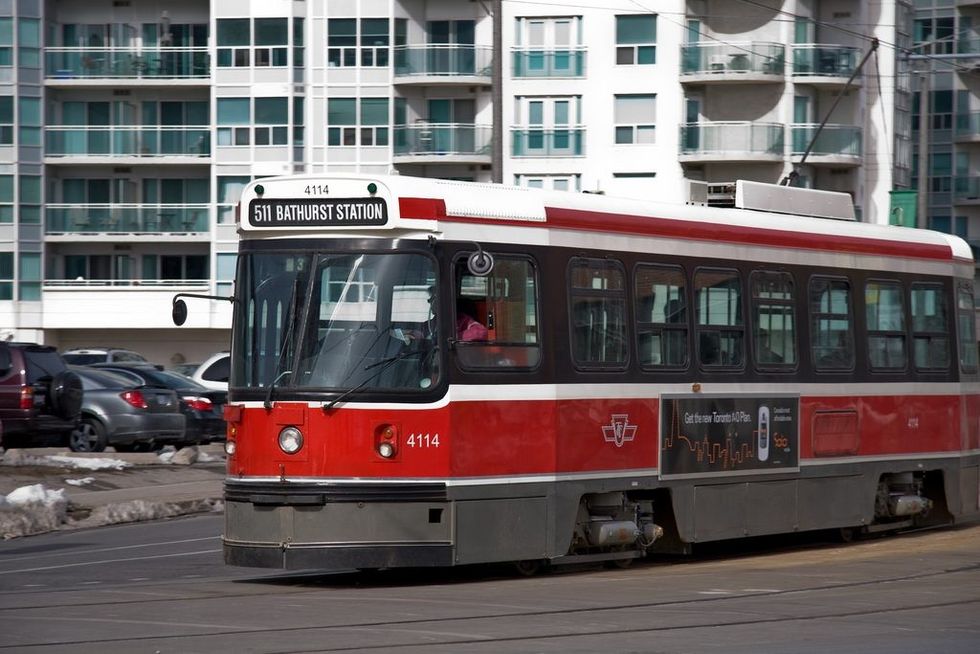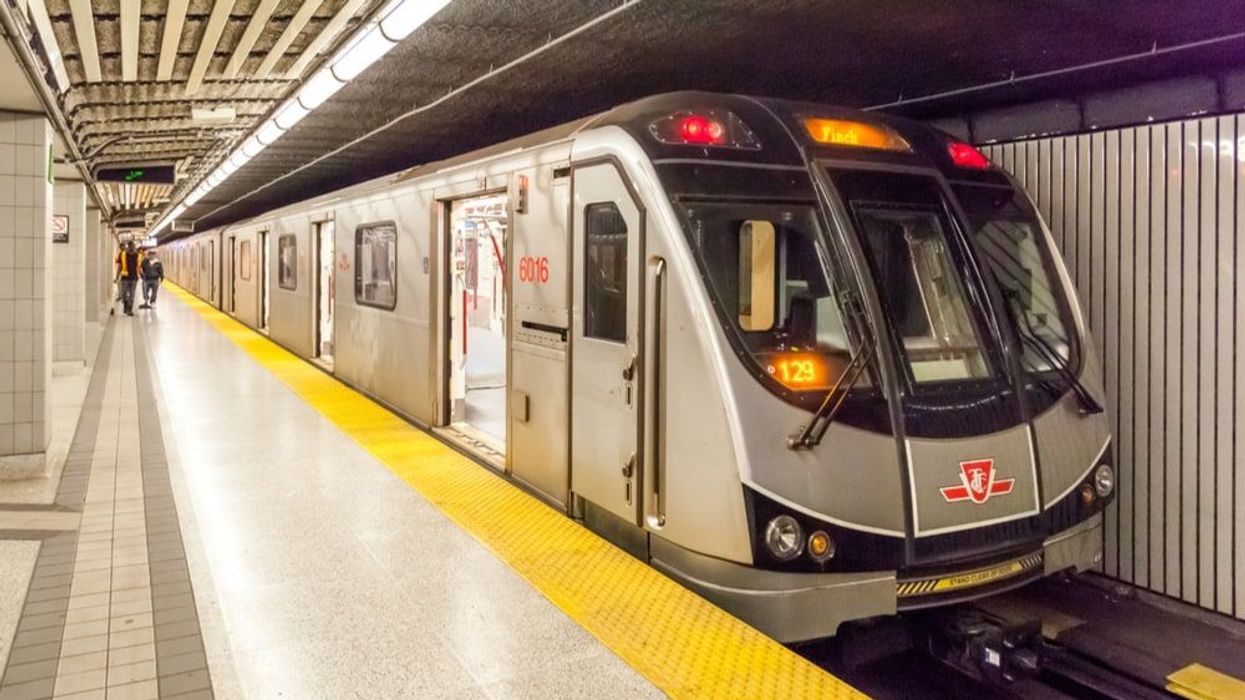“We’re tired of talking,” said Marvin Alfred, Amalgamated Transit Union (ATU) Local 113 president of proposals offered by the Toronto Transit Commission (TTC). “The offers have strings attached.” After days of intense talks with the TTC, in a press conference this morning, Alfred says his bargaining team is “pissed off” and TTC workers are prepared and ready to go on strike. The TTC, he says, is “exploiting” its workers.
So, despite ongoing negotiations, the probability of a strike seems increasingly likely as the clock counts down to a midnight strike deadline.
Countless Toronto residents have recently learned the fun fact that the Toronto Transit Commission (TTC) is not currently considered an essential service and, therefore, its employees may legally walk off the job and hit the picket lines. The last time the transit system saw a strike was back in 2008.
ATU Local 113 is currently demanding increases in wages, job security, and benefits, which they say haven’t kept up with the times.

While talk of a strike has been rife for weeks now, it’s safe to say that few people actually anticipated this happening. A strike would literally mean the entire shutdown of subway, bus, and streetcar service and would close TTC stations all together. Wheel-Trans will continue to operate, however.
In short, the impact will be a complete mess, paralyzing an already slow-moving city even further and having very real consequences. A report released earlier today revealed that traffic on the city's infamous Gardiner Expressway has increased by up to 250% during rush hour due to recent lane closures. Not only will TTC closures force more drivers onto Toronto’s already incredibly congested streets, countless businesses (like your go-to restaurants and bars) will be short-staffed, and essential service workers – like teachers, caregivers, or crisis centre workers, for example – could face major transportation challenges.
The 2008 Strike
Back in 2008, the TTC strike resulted in the shutdown of service on April 26 at 12:01am for less than two days, before the Liberal government passed a back-to-work legislation. There were a few notable differences between that and today. While the 2008 strike action was legal, ATU Local 113 provided just 90 minutes before services ground to a halt on the TTC. This was a controversial move, as the union had previously said that it would provide a 48-hour notice of service withdrawal. This time around, ATU Local 133 has outlined, in no uncertain terms, its intent to strike come midnight tonight if a deal isn’t reached. In theory, riders have had days to “prepare.” With that said, the union did say that TTC service would not stop until 2am in order to accommodate those riding it come the stroke of midnight.
Of course, another massive difference now is that Toronto’s population has increased significantly in the past 16 years, with record-breaking immigration figures and sky-high condo buildings dramatically adding to its density. Toronto's population was 5,309,000 in 2008; now, it's 6,431,000. The city’s traffic and congestion has also become virtually intolerable – and only made worse by widespread construction on streets across Toronto. In fact, earlier this year, Toronto's traffic was designated as the worst in North America. Furthermore, the city's traffic is now condisered the third worst of all major cities in the entire world.
GO service will be up and running for those looking to access (or escape) the core during the strike. Furthermore, ride share and taxi companies have said they’re ramping up service. Of course, this is only going to add to car traffic on city streets. The only good news is that there isn’t a ton happening this weekend in the city (and, hopefully, the strike will only last one weekend). While there are a few festivals taking place, the city won't see any road-closing marathons and the Blue Jays are playing out of town all weekend. We can only imagine the chaos and congestion that would ensue if this was August and we added the CNE, back-to-back Budweiser Stage concerts (this weekend there's only one, Pixies and Modest Mouse, on Saturday night), a Toronto FC game, and a Jays game to the equation.
In the case of 2008, the strike lasted less than two days. Calling the hasty strike action “unacceptable and irresponsible,” then Toronto mayor David Miller made a request to then Ontario premier Dalton McGuinty for a back-to-work-legislation to mandate TTC workers back on the job. On April 26, the provincial government had a Sunday sitting of the Ontario legislature to consider Bill 66. On April 27, 2008, Bill 66 was unanimously passed and given royal assent by then Lieutenant Governor of Ontario, David Onley. It went into effect at 2pm, but the TTC was given time to get transit service back up and running. So, service resumed that evening.
In the years since, the TTC remained an essential service until 2023. On May 23, 2024, ATU Local 113 announced their official strike date of June 7 after a win in the Ontario Court of Appeal that affirmed that the TTC workers’ right to strike was protected by the Canadian Charter of Rights and Freedoms. So, the union's passionate members are likely to do just that.
While we don’t know whether a potential 2024 TTC strike will be as short-lived, it’s safe to assume that countless Toronto residents will be pulling their bikes out of the garage or storage units, or lacing up their sneakers and taking to the streets by foot tomorrow.






















